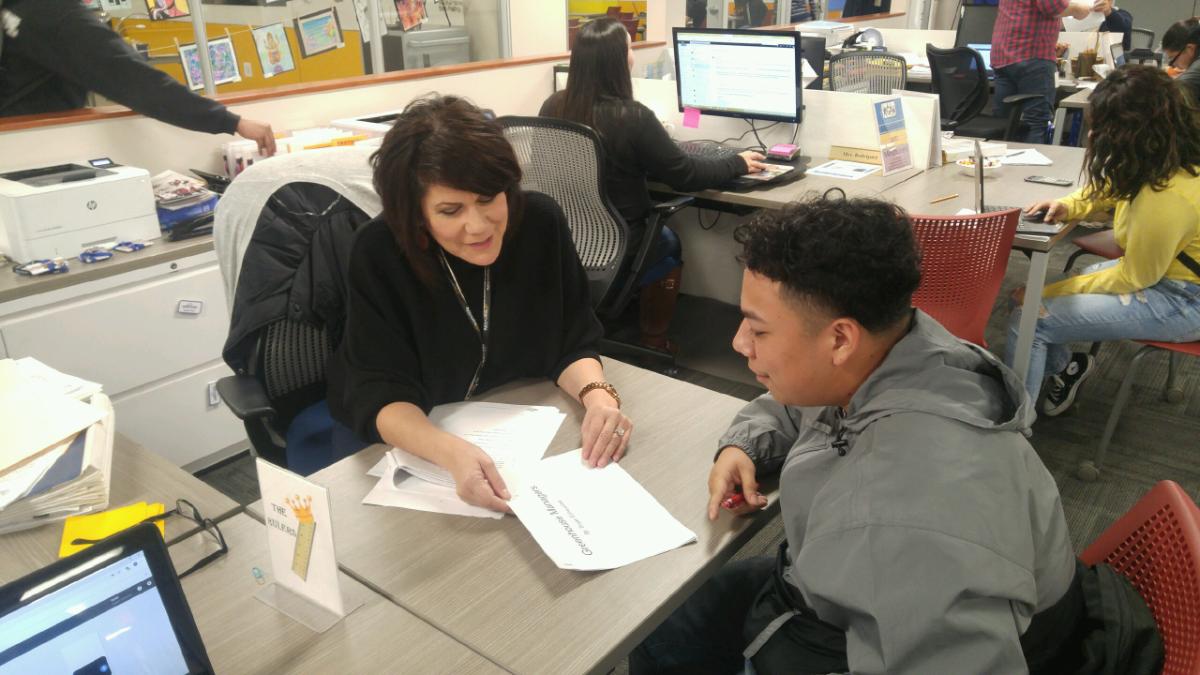
Remember the guidance counselor in high school who would advise on which classes to take and how to apply to college? Due to an acute need to address the emotional needs of students, that role has evolved to become “school counselor,” to address the whole student, and their social and emotional needs, along with academic and career direction.
We understand the profound need for school counselors, and in our schools, we provide a counselor for every 250 students, as recommended by the American School Counselors Association (ASCA) – and far better than the national rate of 1-to-464.
“Yes, we’re here to help them graduate and get job training, but we first need to reach their heart before we can reach their head,” said Lorena Galaviz, director of school counseling and student support. “We offer a safe environment and take the time to really get to know the students. In many cases we are the key people in their lives they can count on.”
Most of our students have had difficulties in life and struggled to keep up in traditional high school. They have endured traumas such as homelessness, foster care, hunger, abuse, bullying, illness and even human trafficking. Eighty percent are low-income, many are pregnant or parenting teens, and most enroll with us after dropping out, more than a year behind in credits.
Our counseling program was developed based on the ASCA national model. Counselors receive extra education in areas such as trauma-informed care, mental health first aid, behavior threat assessment, human trafficking, social media and how to work with foster and homeless students. “We work with community partners to provide wraparound services – everything we can do to reduce the issues that are preventing them from learning,” she added.
“Students flourish with our model of personalized learning, one-on-one support and counseling,” noted Galaviz.
